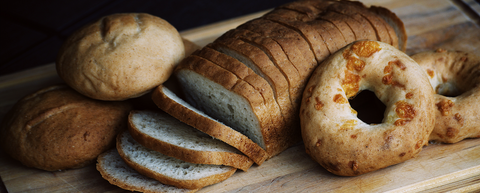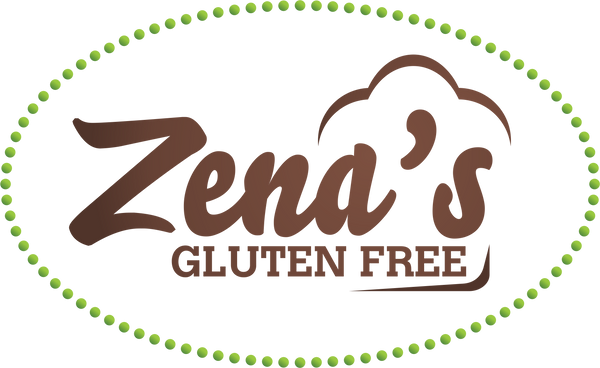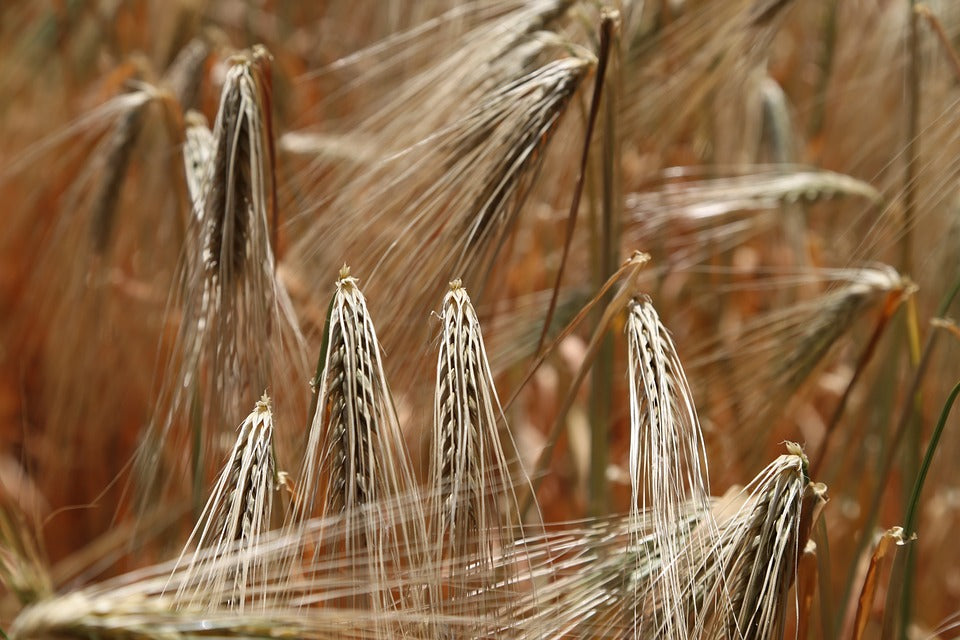
Recently, the gluten-free diet has become a subject of much discussion and debate. But, what is gluten and is it bad for you?
Simply put, gluten is a mixture of proteins found most commonly in wheat. It is also present in rye, barley, spelt and other grains used to make breads, cereals, pastas and foods you might not suspect, like salad dressings and sauces. It is the compound which gives elasticity to dough and helps it to rise and keep its shape. While gluten consumption is safe for most, there are many for whom gluten consumption has negative and in some cases even life-threatening consequences—individuals who have been diagnosed with celiac disease or gluten intolerance.
Celiac disease is a genetic, autoimmune disorder which is triggered by the ingestion of gluten. With an autoimmune disease, the immune system, which defends the body against diseases, mistakenly attacks healthy cells. In people with celiac disease, the immune system’s response to gluten causes damage to the lining of the small intestine, where most of the nutrients found in food are absorbed to be used by the body. Damage to the small intestine can lead to nutrient deficiencies which may lead to a host of other problems.
In adults, celiac disease may lead to arthritis, depression or anxiety, tingling numbness in hands and feet, seizures and irregular menstrual periods. In children it may result in growth problems, weight loss, chronic diarrhea, constipation, vomiting, abdominal bloating and pain, fatigue and irritability; while teens may experience late puberty, depression, itchy skin and mouth sores.
While researchers continue to explore medicinal and other forms of treatment, at present, the only effective way to manage celiac disease is to maintain 100% gluten-free diet for life, as even trace amounts of gluten can be enough to cause a reaction in the body.
Gluten Intolerance, unlike celiac disease, is not an autoimmune condition and does not cause damage to the small intestine. Although celiac disease and gluten intolerance are two separate conditions, the symptoms of gluten intolerance are often very similar to that of celiac disease and can be as severe.
Symptoms of gluten intolerance may include diarrhea, constipation (especially in children), fatigue, hormonal imbalances, swelling or pain in your joints, anxiety, depression, and attention-deficit/hyperactivity disorder (ADHD).
As is the case with celiac disease, gluten avoidance is the only treatment for gluten intolerance. Though there are tests that can determine whether a person has celiac disease, gluten sensitivity can only be diagnosed through the process of elimination. Remove gluten from your diet for at least two to three weeks and note the changes that you feel. If you feel significantly better off when gluten is removed from your diet or feel worse when it is reintroduced, it may be an indication that you are gluten intolerant.Gluten can take months and even years to clear from your system, so the longer you can eliminate it from your diet before reintroducing it, the better.
If you are one of the many who suffer from celiac disease or gluten intolerance you may now feel like food is your enemy. However, with advances in food science there are many substitutes for food that would normally contain gluten. Zena’s Bakery offers a varied selection of 100% gluten-free, fresh-baked goods that taste delicious and are high in nutritional value. We also provide a wide array of mixes that will allow you to create your own homemade gluten-free pizzas, brownies, cakes, waffles and other favorite treats.
Just as is the case with any other diet, balance is key. It is important to balance your diet with natural gluten-void foods to ensure you get all the nutrients you need. The recommendations for a gluten-free diet are very similar to that of a traditional healthy diet. Fruits and vegetables, beans, nuts, seeds, fish and meat (for non-vegetarians), should comprise a large portion of your diet. There are also gluten-free grains that may be consumed as part of your healthy diet, such as quinoa, sorghum, buckwheat, millet and teff.
If you are new to the gluten-free diet, it may seem a bit overwhelming, but following a gluten-free diet is a learning process. In time, you will have it figured out and be back on track to healthy living. To make the transition easier, feel free to consult a nutritionist or dietitian to help with meal planning.

